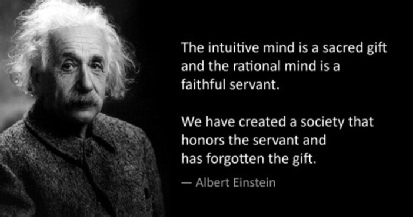



 NEXT
NEXT
 BACK
BACK
 Forum
Forum


Philosophical musings on Quanta & Qualia; Materialism & Spiritualism; Science & Religion; Pragmatism & Idealism, etc.




Post 112. December 1, 2020
Is Consciousness An Illusion?
Is Intuition a Delusion?
One pertinent form of Information is Language. And Nagel points-
What we normally call “Mind” is, in Dennett’s theory, merely shadows in a reversal of Plato’s Cave11. As Nagel puts it : “This brings us to the question of consciousness, on which Dennett holds a distinctive and openly paradoxical position . . . . Dennett holds that consciousness is not part of reality in the way the brain is.” Nagel finds this inversion of intuition to incongruous because, “as Descartes famously observed, the reality of my own consciousness is the one thing I cannot be deluded about”. Ironically, “the way Dennett avoids this apparent contradiction takes us to the heart of his position, which is to deny the authority of the first-
Nagel summarizes Dennett’s thesis : “the reality is that the representations that underlie human behavior are found in neural structures of which we know very little”. Which he attempts to deconstruct : “If I understand him, this requires us to interpret ourselves behavioristically13: when it seems to me that I have a subjective conscious experience, that experience is just a belief”. Then, he offers this criticism : “Dennett asks us to turn our backs on what is glaringly obvious—that in consciousness we are immediately aware of real subjective experiences of color, flavor, sound, touch, etc. that cannot be fully described in neural terms even though they have a neural cause”. Hence, Nagel denies the philosophy of Materialism that underlies Dennett’s scientific & reductive analysis of the immaterial phenomenon of Consciousness.
Post 112 continued . . . click Next
Intuition
or
Delusion
?
11. Plato’s Cave :
https://faculty.washington.edu/smcohen/320/cave.htm
12. Einstein’s Intuition :
http://www.bu.edu/cphs/files/2015/04/2006_Einstein_s_Intuition.pdf
13. Behaviorism :
The “radical” doctrine of B.F. Skinner : “Psychology is the science of behavior. Psychology is not the science of the inner mind – as something other or different from behavior.”
https://plato.stanford.edu/entries/behaviorism/

Is Consciousness
an Illusion?
Dennett’s paradoxical
position on
Consciousness
Thomas Nagel
Philosopher of Law, Politics
and Ethics
“Materialism remains a
widespread view, but science does not progress by tailoring the data to fit a prevailing theory.”



Intuition
Einstein’s
